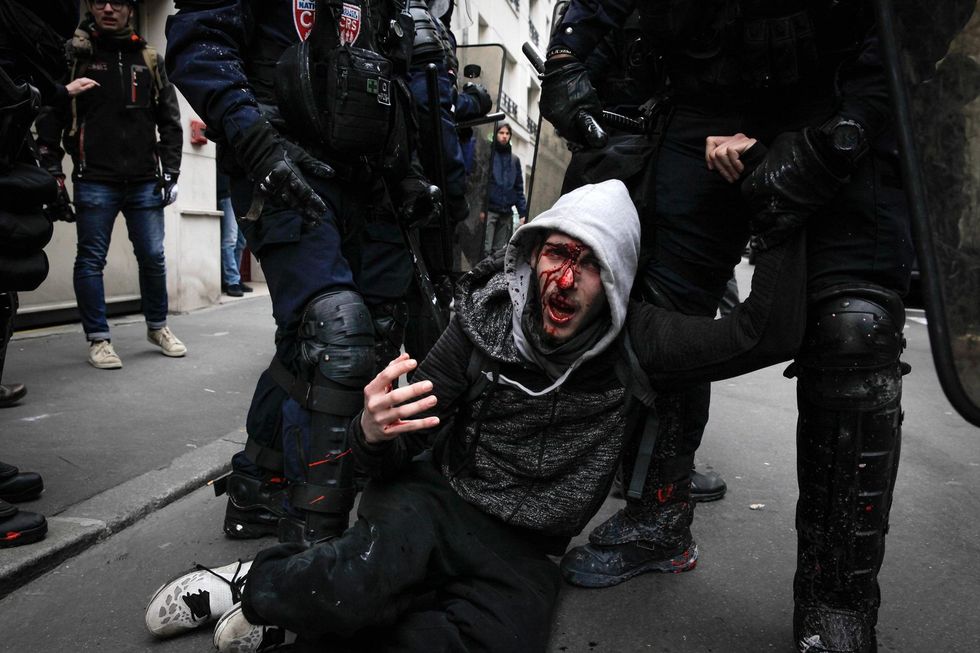
Students and workers protest in France amid proposals to reform public sector jobs. (AFP/Getty Images

Riots and strikes plagued France on Thursday, in protest against a proposed labor reform bill.
The Daily Mail reports that 170,000 laborers and students took to the streets across the country, with public employees refusing to work and protestors clashing with police, seeing law enforcement retaliate with tear gas and water cannons.
With public transportation like trains and flights being halted, France's services have been disrupted in defiance of reforms proposed by the country's newly-elected president, Emmanuel Macron. Even teachers walked off their jobs.
Public employees are resisting cuts to the government-paid labor force, amid initiatives to increase contracted positions and provide the private sector more freedom in hiring and firing.
President Macron's administration maintains that the people of France endorsed the proposals when they voted for the leader last May. At the same time, Reuters reported seemingly contradictory polling indicating that while most voters support the strikes, even more of them back the reforms.
Reports estimate that roughly 323,000 workers walked off the job on Thursday, including nurses and air-traffic controllers. Their grievance is with President Macron's proposal to modify some retirement benefits, implement unemployment reforms and pursue efforts to fix the state-run SNCF rail service — which is deep in debt.
Merit-based pay and eliminating redundancies were also part of Macron's plan, fueling further outrage from public sector workers.
Across France, roughly 150 marches were scheduled, but have not yet achieved the fervor of previous labor protests. In 1995, government labor reforms were withdrawn in response to pushback.
Business leaders and economists have endorsed Macron's proposals, citing the president's election as a boost for consumer confidence and pointing to low unemployment. In January, European economist Carsten Hesse said "Confidence levels surged in all sectors and industrial confidence reached the highest level since the survey start in 1985" citing past polls.
Hesse continued, "France could overtake Germany's GDP growth at some point in the not so distant future. Macron's labor market reforms and the strong demand environment support our view that France is heading for a golden decade."
Macron has also promised a reduction in corporate taxes and cuts to the nation's deficit.